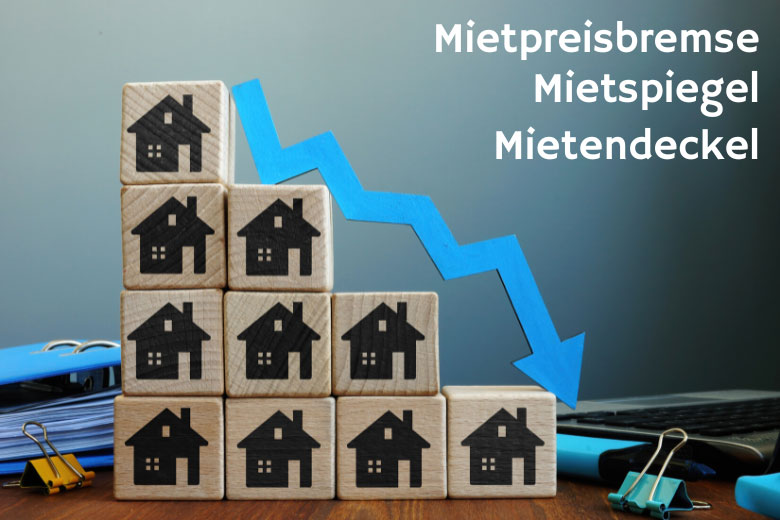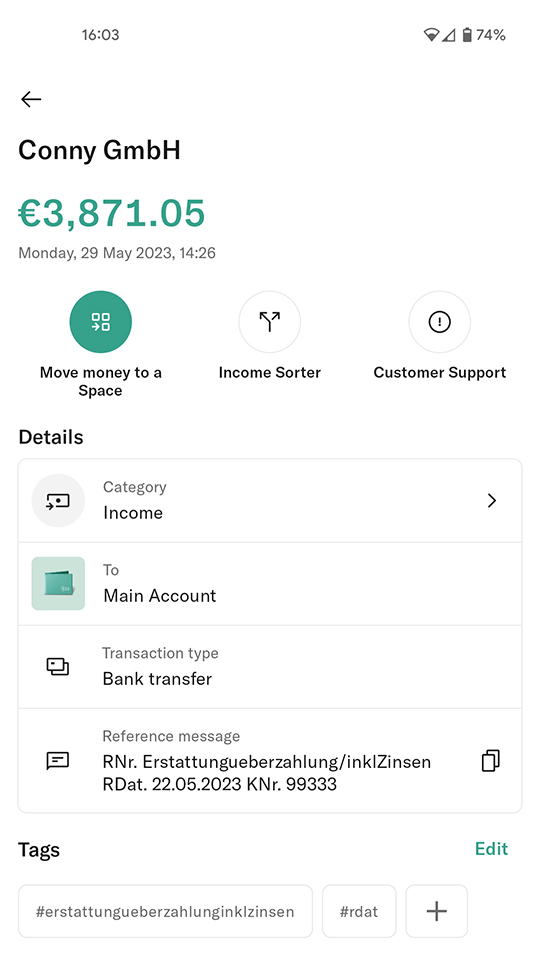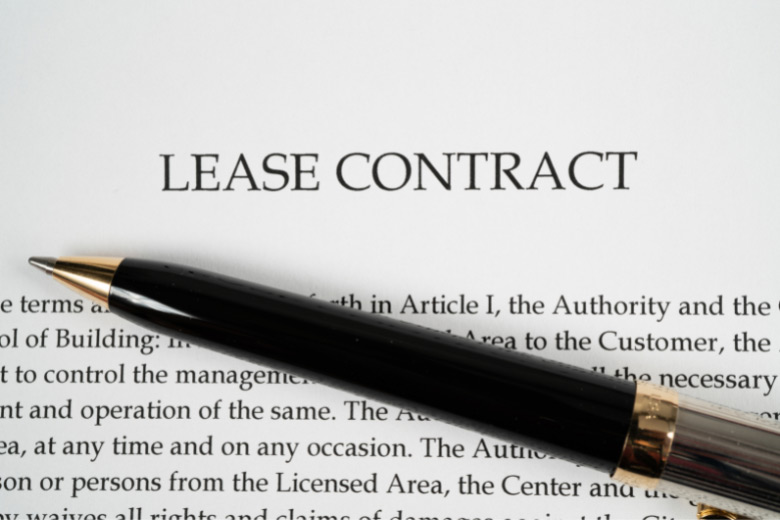
Interested in reducing your rent in Germany but not sure whether Conny is worth it? Expats share their experience on how they reduced their rent in Berlin and got over €5,000 back in this Conny Review.
Looking to reduce your rent but not sure if you should trust Conny? You’ve come to the right place.
We used Wenigermiete (now Conny) to successfully reduce our rent in Berlin. We’ll take you through what you need to get started, how our relationship with our landlord changed, how long the process took in court and when we got €5,839 back!
This Conny review reveals everything you need to know to legally reduce your rent in Germany.
Disclosure: This review is a personal account of our experience using Conny and is not sponsored in any way. But whether a guide is sponsored or not, we always share our honest opinion.
What is Conny GmbH
Before we jump straight into how you can reduce your rent in Germany, you may be wondering what all the fuss is about Conny GmbH.
Conny is an online platform offering legal services in Germany. They specialise in tenancy law, labour law and telecommunications law.
We signed up when Conny was previously called Wenigermiete. They helped us apply the Mietpreisbremse (rent cap) to successfully reduce our rent in Berlin. With Conny’s help, we managed to get €5,839 plus interest paid back.
Save Me For Later

Understanding Mietpreisbremse
Mietpreisbremse, or rent cap as it is also known, is a rent control law in Germany that was passed in 2015. Simply put, it limits how much rent your landlord can ask for. Unlike in other states in Germany, Mietpreisbremse applies in ALL districts in Berlin.
So if you signed a lease on or after June 1, 2015, the rent cap applies to your rental contract. And if the net cold rent exceeds the standard local comparative rent for your corresponding apartment (called Mietspiegel) by more than 10 percent, you can legally ask your landlord to reduce your rent.
Just like the €9 ticket, Mietpreisbremse might not be around forever. As it stands, it has been extended and is currently valid up to and including May 31, 2025. So if you want to reduce your rent in Berlin or anywhere else in Germany, now’s your opportunity to assert your rights and request a rent reduction.
Exceptions to Mietpreisbremse: When Does the Law Not Apply
There are exceptions though, where Mietpreisbremse cannot be applied. These exceptions are defined in the German nationwide rent control law and also apply to Berlin. For example, Mietpreisbremse does not apply if:
- The previous tenant was already paying an excessive rent.
- The living space is rented out temporarily.
- Rental leases signed before June 1, 2015.
- Rental apartments that have been extensively modernized.
- New apartments rented for the first time after October 1, 2014.
Not sure if Mietpreisbremse applies to your rental contract? You can easily find out using Conny’s online rent reduction calculator.

Mietpreisbremse vs Mietspiegel vs Mietendeckel
If you’re wondering what Mietpreisbremse, Mietspiegel and Mietendeckel is (besides it being a German tongue twister) – don’t worry. You don’t need to understand or even be expected to pronounce these tricky German words to reduce your rent in Berlin.
Simply put, both Mietpreisbremse and Mietendeckel are rent control laws. Both laws regulate the maximum rent landlords can charge tenants in Berlin.
The only difference now, is that Mietendeckel is no longer effective (since April 15, 2021). Therefore tenants can only rely on Mietpreisbremse to reduce their rent in Berlin and the rest of Germany.
Mietspiegel, on the other hand, refers to a comparative rent index for apartments. In simple terms, it lists the average rent paid for similar apartments in the area. And this average rent is compared against your current rent, to determine if and by how much your rent needs to be reduced by.
How Does it Work
When we first arrived in Germany in 2019, finding an affordable apartment in Berlin was notoriously difficult. Fast forward several years, renting an apartment has become even more challenging (if not near impossible). Not only in Berlin, but also in many other cities in Germany.
It’s no surprise that like many other people in search of affordable housing, we had to settle for an overpriced fully furnished apartment which we found on a popular apartment search portal.
Even before we signed the 1 year lease, we already had a suspicion that we were paying too much rent. But once we found out that Conny can help lower your rent in Germany, we didn’t hesitate and immediately signed up to reduce our rent.
Here’s how you can expect the rent reduction process to go:
Step 1: Calculate Your Potential Rent Reduction
First, you’ll need to use Conny’s online rent reduction calculator to check if you’re paying too much rent. The calculator is in English and it takes approximately 15 minutes to complete.
You’ll need to answer a few questions about your rental agreement as well as the apartment. You can also upload a copy of your lease if you want to, but it’s optional.
Once you submit your information, you’ll receive an email with an estimate of your potential rent reduction.
You’ll see from the calculator that there are several factors affecting how much rent you can save. So any calculated rental reduction should be treated only as an estimate. The final rent saving could be higher or even lower than the amount calculated. In other words, take the estimated rental saving with a pinch of salt.
For example, when we used the calculator to calculate our rent reduction, we received an email estimating that we could save €589.96 per month. But after all the information about our fully furnished apartment was considered by the court, we were awarded a rental reduction of €317.64.
Step 2: Submit Power of Attorney Letter
After you submit your information, you’ll receive an email a couple of days later containing a power of attorney letter (Vollmacht). You’ll need to sign and date the Vollmacht in order to appoint Conny as your legal representative and to proceed with the rent reduction process.
You can send the signed power of attorney along with your lease (if you didn’t upload it via the online calculator) back to Conny via email. This will help get the process started. But you’ll also need to post the original signed Vollmacht to Conny as some landlords may request to see the original.
Useful Tip: The Power of Attorney email also contains a unique link which lets you check the status of your case. You can use this link to find updates about any new developments on your case.
Step 3: Conny Contacts Your Landlord to Request a Rent Reduction
Once Conny receives all your documents, they will start working on your case to assess if your apartment fulfils the requirements to apply the rent cap. If Conny believes that they can indeed help reduce your rent, they will contact your landlord to complain about your excessive rent.
If your landlord cooperates, you could reduce your rent within weeks. But if your landlord decides not to cooperate (like ours), Conny may have to take the matter to court. And if your case does end up going to court, it may take several months (if not years) before it’s resolved.
For example, we signed up for Conny in August 2019. Unfortunately our landlord was not cooperative, so our case was taken to court. And after the court ruled that our rent was indeed excessive, our lovely landlord decided to appeal the court’s decision.
So the matter was referred back to court. Eventually, the district court made a final decision about our case in October 2021. Obviously, the COVID-19 pandemic didn’t help speed things up. But it’s no secret that these things take time.
So the key is to be patient and wait, especially if your case ends up in court. Conny will contact you if they need information or if they need to inform you about urgent matters regarding your case. You can also check your case status link for updates about your case.
Step 4: Get the Final Rent Reduction Outcome
If Conny is successful at reducing your rent, you’ll receive a refund (less Conny’s fees) paid directly into your bank account. But if your case is not successful, Conny will share the court’s ruling with you which explains the reasons your rent could not be reduced.

How Much Does it Cost
If Conny is successful and they manage to reduce your rent, their fee is 5 times the amount you save each month. For example, Conny helped us reduce our rent by €317.64 per month. So they keep €1,588.20 (€317.64 x 5) and pay us the difference of what the court awarded us for overpayment of rent (€5,839 plus interest).
But if Conny is not successful at reducing your rent, you will not be charged any costs. Even if your case goes to court and Conny incurs lawyer’s fees and court costs, you pay nothing. You only pay in case of success!
How Long Does Conny Take to Reduce Your Rent
The rent reduction process may take a few weeks or in our case, up to 24 months. It all depends on the willingness of your landlord to comply with Conny’s complaint about your excessive rent.
So if your landlord decides to cooperate and complies with the initial complaint, you could reduce your rent within weeks. But if your landlord does not cooperated and decides to have the matter resolved in court and then appeals the court ruling to a higher court, it can take over a year (if not longer).
The good news is that if Conny is successful, your rent will be reduced retroactively. This means that the landlord has to refund the tenant the difference in rent from the date of the complaint.
Whether the rent reduction process takes one week or 2 years, you won’t lose any money while you wait for the process to be concluded. In our case, the court even awarded us interest in addition to the amount the landlord owed us. So the longer our case took, the more interest we earned on the amount owed to us.
What You Can Expect Communicating with Conny
The number one complaint about Conny on Turstpilot is lack of communication. So don’t expect Conny to respond as quickly as a private lawyer would. You won’t get many updates, it may take several weeks for your emails to be replied to and sometimes you won’t even get a reply at all.
Take it from us. We exchanged over 50 emails with Conny during the entire process. If we could give ourselves advice at the beginning, it would be: “Be patient and wait for the process to play out.”
The rent reduction process is completely out of Conny’s control. Your landlord and the courts can delay your case by months, if not years. So avoid inundating Conny with emails like we did.
They will only ever contact you if there really is an update about your case. Or if they require further documents.
How Long Between Signing Up for Conny and the Final Court Decision
Here’s a timeline from when we signed up for Conny until the district court made a final decision on our rent reduction case:
- August 2019: Sign-up for Conny
- February 2020: Mietendeckel introduced
- March 2020: Start of the COVID-19 pandemic
- April 2020: Conny Lawyers prepare lawsuit and refer case to the district court
- December 2020: District court reduces our rent by €317.64, awards us €5,839 plus interest
- March 2021: Landlord appeals the decision and refers the case back to court
- March 2021: Moved out of the apartment, landlord refunds full deposit
- April 2021: Mietendeckel repealed by the federal constitutional court
- October 2021: District court rejects the landlord’s appeal
- February 2023: Landlord refuses to pay, matter referred back to court
- May 2023: District court makes final decision on total amount to be refunded
Why it Took Almost 4 Years for our Case to be Finalized
You would think that as Conny wins more court cases, landlords would choose to cooperate and not fight a losing battle. Unfortunately for us, our landlord still refused to pay what the court awarded us even after they lost their appeal.
Did Conny do what they set out to? Yes! They helped us reduce our rent. The court awarded us €5,839 plus interest, so Conny did their job.
We moved out of the apartment before the court judgement. Our landlord then refused to pay us the entire amount because they claimed we owed money for unpaid utility bills. Which is absurd because our rent included all utility costs.
Plus our landlord had already paid our full deposit back and also issued us with a ‘Mietschuldenfreiheitsbescheinigung’ (free of rent-related debt certificate) twice! So Conny headed back to court for a third time to get a final decision on total amount to be refunded by the landlord.
The silver lining is that the court also awarded us interest of 5% above the Basiszinssatz (base interest rate), initially -0.88% but rose to 1.62%. So every second we waited, we earned interest of 4.12% then rising to 6.62% which is more than you’ll get from any bank in Germany.
When Did We Receive Our Refund from the Landlord
On the 29th May 2023, Conny finally paid over €3,871.05 into our bank account. A few weeks after the court made the final judgement on our case.

The amount includes 12 months of overpayment of rent plus interest. The other 4 months of overpayment of rent is kept by Conny as their fee (which has since increased to 5 months).
They also kept €756.49 which the court awarded us for ‘vorgerichtliche Rechtsverfolgungskoste’ (pre-trial legal costs). Conny confirmed that these are costs incurred when they tried to assert our claim for a rent reduction out of court, and why they keep this amount.
Will the Relationship with Your Landlord Change
You might be worried that by using the legal services of Conny GmbH, it will anger your landlord. But just because you’re asking your landlord to reduce your rent, it doesn’t automatically mean that you’re taking them to court. At this point, Conny is simply negotiating a rent decrease with your landlord.
However, if your landlord refuses and Conny needs to take the matter to court, it’s true that the landlord may try to make your life more difficult.
In our case, our landlord’s lawyer sent us numerous threatening and demeaning letters and e-mails. Some of which accused us of leading the landlord under the false pretence that we were only planning to stay in the apartment on a short-term basis due to our ‘foreign roots’ and the nature of our work (i.e. work from home).
And how our high rent was justified because we lived in a ‘premium’ neighborhood as it had a view of a church. We could go on, but let’s not diverge too much.
Ultimately, your landlord cannot end your lease, refuse to renew your lease or stop providing services simply because you asked for a rent reduction. But it won’t be all sunshine and roses either.

How Our Landlord Tried to Evict Us After We Asked for a Rent Decrease
Your relationship with your landlord may sour after you approach Conny. But that’s not sufficient reason for any landlord to evict you as a tenant. We know – because we personally experienced this!
Yes – our landlord refused to extend our lease and tried to evict us from our apartment after Conny approached them to reduce our rent in Berlin! We refused to vacate the apartment, of course. We continued to pay our excessively high rent and did not breach any terms of the rental agreement. So the landlord had no legal reason to evict us.
Plus, when Conny checked our lease agreement it was established that our rental contract was in fact not limited (befristet Mietvertrag) simply because we rented a fully furnished apartment. In other words, our lease was actually considered an unlimited lease (unbefristet Mietvertag), which meant we didn’t need the landlord’s approval to extend the lease.
Long story short, our landlord served us with an eviction notice and the matter ended up in court. With the help of an English speaking lawyer, we successfully fought the eviction and settled out of court.
Instances When Your Landlord Can End a Unbefristet Mietvertag
There are instances when your landlord may legitimately terminate an unlimited lease. According to Civil Code Law § 573, your landlord may give you notice of termination if:
- You have violated your contractual obligations of the rental agreement.
- The landlord needs the apartment for himself, his family members or members of his household.
- The landlord would be prevented from an appropriate economic exploitation of the property by the continuation of the tenancy and would suffer considerable disadvantages as a result.
Our landlord eventually got their way because they claimed that they needed the apartment for a family member. Coincidentally a day before our scheduled court date. But this is one of the few valid reasons that a landlord can use to end an unlimited lease in Germany.
In the end, it is true that we had to move out of our apartment. But it didn’t cost us a cent as the landlord covered all the lawyer’s fees and court costs as part of the out-of-court settlement. And with Conny’s help, we still got €5,839 plus interest which the court awarded us for over-payment of rent.
There is no doubt that the landlord learnt a very expensive lesson and will hopefully be dissuaded from overcharging rent to the next tenant or ‘family member’. Either way, we don’t feel bad that the relationship with our landlord soured. We’re just happy to do our part to help stop rent prices in Berlin (and in Germany) from rising excessively. Maybe you’ll do the same too.
Does Conny Assist You in English
Not only is the Conny website in English, but their team also assist you in English.
All our email correspondence regarding the rent reduction process was communicated to us in English. So that includes requests for information, confirmation of receipt and updates about our case.
We also had two telephone calls with Conny lawyers about where we were in the rent reduction process and what would happen next. In both calls, the lawyers spoke to us in English.
Was Conny Worth It
Yes, absolutely! Conny did exactly what they promised. They asked our landlord to reduce our rent, and when they didn’t comply Conny took the matter to court and won twice!
Sure, Conny takes forever to reply to emails. And yes, the rent reduction process took about two years. And maybe our landlord un-followed us on Instagram. But in the end, the court awarded us €5,839 plus interest and it didn’t cost us anything up front.
Conny is worth every penny. So if you want to also do your part and help deter landlords from over charging rent and stop rental prices from rising excessively in Germany, get your rent checked today. It may save you hundreds or even thousands of Euros, like it did for us.
Using Conny Immediately After Signing a Lease
Finding an apartment in Germany is no easy feat. And if you live in Berlin, well, you might find yourself moving from temporary accommodation to temporary accommodation while you continue the search.
Most affordable apartments disappear in seconds. And what’s left is usually expensive, over priced apartments that exceed what landlords can legally rent them out for. So you might not have any option but to settle for an apartment whose rent may already be illegally too high.
But can you use Conny immediately after signing a lease? Why not! If you suspect that your rent is too high even before signing a lease, don’t be afraid to get Conny to check your lease after you move in.
If your landlord doesn’t feel bad about charging you illegally high rent, then you shouldn’t feel bad about using Conny either. Remember, you’re not breaking any law by asking Conny for help. So don’t lose any sleep on it.
After all, we can’t fight illegally high rent alone. The only way to fight excessively high rents is if we all make sure our landlords are charging the fair price as per Mietpreisbremse. But no pressure. The decision is yours and yours alone to make.

Other Ways You can Reduce Your Rent in Germany
If you’re looking for alternatives to Conny, then you’ll be please to know there are other ways you can reduce your rent in Germany. Here are three options that can also help you pay less rent:
Join a Tenants’ Association (Mieterverein)
Joining a Tenants’ Association (Mieterverein) can also help you pay less rent. They have lawyers, assessors, energy consultants and other staff working for them to support you in any dispute with your landlord.
For example, to become a member of the Berliner Mieterverein only costs €9 per month and has a minimum membership period of 24 months. But once you’re a member, you can ask their legal experts to check your lease and tell you if you’re paying too much rent. And if you are paying too much rent, they’ll step in your shoes and get your landlord to reduce your rent.
Just bear in mind that there may be a waiting period before you can access legal services.
Hire a Lawyer
Hiring a private lawyer might give you a more personal experience. But it will be more expensive whether or not you’re successful with the rent reduction.
We’ve personally used English speaking lawyer Rechtsanwalt Martin Kirsch to represent us in our eviction lawsuit. Luckily for us, we didn’t have to pay any fees because in Germany ‘the loser pays all’ principle applies to legal disputes.
Get Legal Insurance
Legal insurance is a great way to cover unforeseen legal costs. So costs for court, lawyers, assessors and mediation are all covered. You’ll also have access to a network of specialist law firms and even get free legal advice via telephone.
Getting cover now may help you cover the cost of getting a lawyer to help you reduce your rent.
Related Guide: Getting a rent reduction will go a long way in reducing your cost of living in Germany. But it can take months or even years for this cost saving to materialize. To cut costs now, check out our How To Save Money in Germany guide for 14 easy tips to reduce your cost of living.




